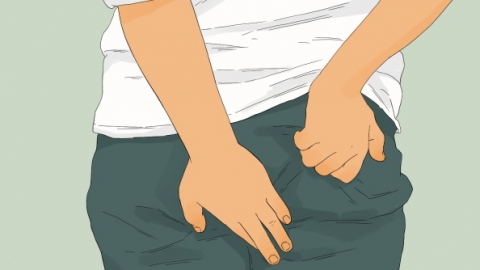What should I do if perianal abscess recurs?
After recurrence of perianal abscess, timely medical evaluation is necessary, along with standardized anti-infective treatment, surgical drainage when needed, screening for anal fistula, and proper postoperative care to prevent worsening of the condition or complications. Immediate medical attention is recommended if symptoms such as abscess rupture, persistent high fever, or severe pain occur.
1. Timely Medical Evaluation: After recurrence, patients should promptly visit a specialist in proctology. Physical examination and ultrasound can help determine the location, size of the abscess, and whether a fistula is present, providing accurate guidance for further treatment. Self-medication should be avoided to prevent delays in diagnosis and treatment.
2. Standardized Anti-Infective Treatment: Doctors will prescribe oral or intravenous antibiotics based on the severity of the condition to control local inflammation and alleviate symptoms such as redness, swelling, heat, and pain. Medications must be taken strictly as prescribed; dosage adjustments or discontinuation without medical advice are not recommended.

3. Surgical Drainage When Necessary: If fluctuation is detected in the abscess, timely surgical incision and drainage are required to evacuate pus, relieve pain, prevent further spread of infection to surrounding tissues, and reduce the risk of developing an anal fistula.
4. Screening for Anal Fistula: Recurrent perianal abscesses are often associated with anal fistulas. Imaging studies or intraoperative exploration should be used to confirm the presence of a fistula. If a fistula exists, it should be treated simultaneously to prevent repeated episodes of abscess formation.
5. Postoperative Care: After surgery, the wound should be kept clean and dry. Dressings should be changed regularly as instructed to promote healing. Prolonged sitting and friction on the wound should be avoided to reduce pain and the risk of infection, supporting recovery.
In daily life, maintain cleanliness of the perianal area and wash with warm water after bowel movements. Eat a light diet rich in dietary fiber to prevent constipation. Avoid alcohol and spicy or irritating foods to minimize perianal irritation and lower the risk of recurrence.




